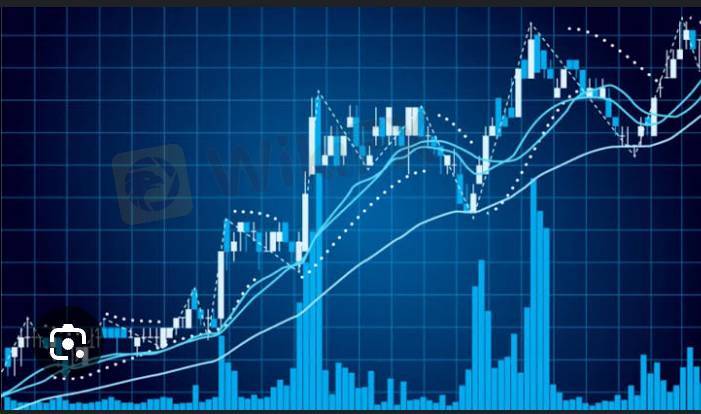2024-12-15 02:09
IndustryTrading signal strategy
As a Forex trader, I've learned that having a reliable trading signal strategy is crucial for achieving consistent profits. In this topic, I'll share my personal approach to trading signals, including the indicators I use, how I set up my charts, and the rules I follow for entering and exiting trades.
*Indicator Setup*
My trading signal strategy relies on a combination of technical indicators, including:
1. *Moving Averages (MA)*: I use two MAs with different time periods (50 and 200) to identify trends and potential reversal points.
2. *Relative Strength Index (RSI)*: I use the RSI to measure the strength of the trend and identify potential overbought or oversold conditions.
3. *Bollinger Bands*: I use Bollinger Bands to gauge volatility and identify potential breakouts.
*Chart Setup*
I set up my charts with the following parameters:
1. *Timeframe*: I use the 4-hour chart for my analysis, as it provides a good balance between short-term and long-term trends.
2. *Currency pairs*: I focus on major currency pairs, such as EUR/USD, GBP/USD, and USD/JPY.
*Trading Rules*
Here are the rules I follow for entering and exiting trades:
1. *Long entry*: I enter a long trade when the 50-period MA crosses above the 200-period MA, and the RSI is below 30.
2. *Short entry*: I enter a short trade when the 50-period MA crosses below the 200-period MA, and the RSI is above 70.
3. *Stop-loss*: I set my stop-loss at 50 pips below the entry price for long trades, and 50 pips above the entry price for short trades.
4. *Take-profit*: I set my take-profit at 100 pips above the entry price for long trades, and 100 pips below the entry price for short trades.
My trading signal strategy has been effective in helping me achieve consistent profits in the Forex market. By combining multiple indicators and following a set of clear rules, I'm able to identify high-probability trading opportunities and manage my risk effectively. I hope that sharing my approach will help other traders develop their own successful trading strategies.
Like 0
Elevated
Trader
Hot content
Industry
Event-A comment a day,Keep rewards worthy up to$27
Industry
Nigeria Event Giveaway-Win₦5000 Mobilephone Credit
Industry
Nigeria Event Giveaway-Win ₦2500 MobilePhoneCredit
Industry
South Africa Event-Come&Win 240ZAR Phone Credit
Industry
Nigeria Event-Discuss Forex&Win2500NGN PhoneCredit
Industry
[Nigeria Event]Discuss&win 2500 Naira Phone Credit
Forum category

Platform

Exhibition

Agent

Recruitment

EA

Industry

Market

Index
Trading signal strategy
 | 2024-12-15 02:09
| 2024-12-15 02:09
As a Forex trader, I've learned that having a reliable trading signal strategy is crucial for achieving consistent profits. In this topic, I'll share my personal approach to trading signals, including the indicators I use, how I set up my charts, and the rules I follow for entering and exiting trades.
*Indicator Setup*
My trading signal strategy relies on a combination of technical indicators, including:
1. *Moving Averages (MA)*: I use two MAs with different time periods (50 and 200) to identify trends and potential reversal points.
2. *Relative Strength Index (RSI)*: I use the RSI to measure the strength of the trend and identify potential overbought or oversold conditions.
3. *Bollinger Bands*: I use Bollinger Bands to gauge volatility and identify potential breakouts.
*Chart Setup*
I set up my charts with the following parameters:
1. *Timeframe*: I use the 4-hour chart for my analysis, as it provides a good balance between short-term and long-term trends.
2. *Currency pairs*: I focus on major currency pairs, such as EUR/USD, GBP/USD, and USD/JPY.
*Trading Rules*
Here are the rules I follow for entering and exiting trades:
1. *Long entry*: I enter a long trade when the 50-period MA crosses above the 200-period MA, and the RSI is below 30.
2. *Short entry*: I enter a short trade when the 50-period MA crosses below the 200-period MA, and the RSI is above 70.
3. *Stop-loss*: I set my stop-loss at 50 pips below the entry price for long trades, and 50 pips above the entry price for short trades.
4. *Take-profit*: I set my take-profit at 100 pips above the entry price for long trades, and 100 pips below the entry price for short trades.
My trading signal strategy has been effective in helping me achieve consistent profits in the Forex market. By combining multiple indicators and following a set of clear rules, I'm able to identify high-probability trading opportunities and manage my risk effectively. I hope that sharing my approach will help other traders develop their own successful trading strategies.
Like 0
I want to comment, too
Submit
0Comments

There is no comment yet. Make the first one.

Submit
There is no comment yet. Make the first one.